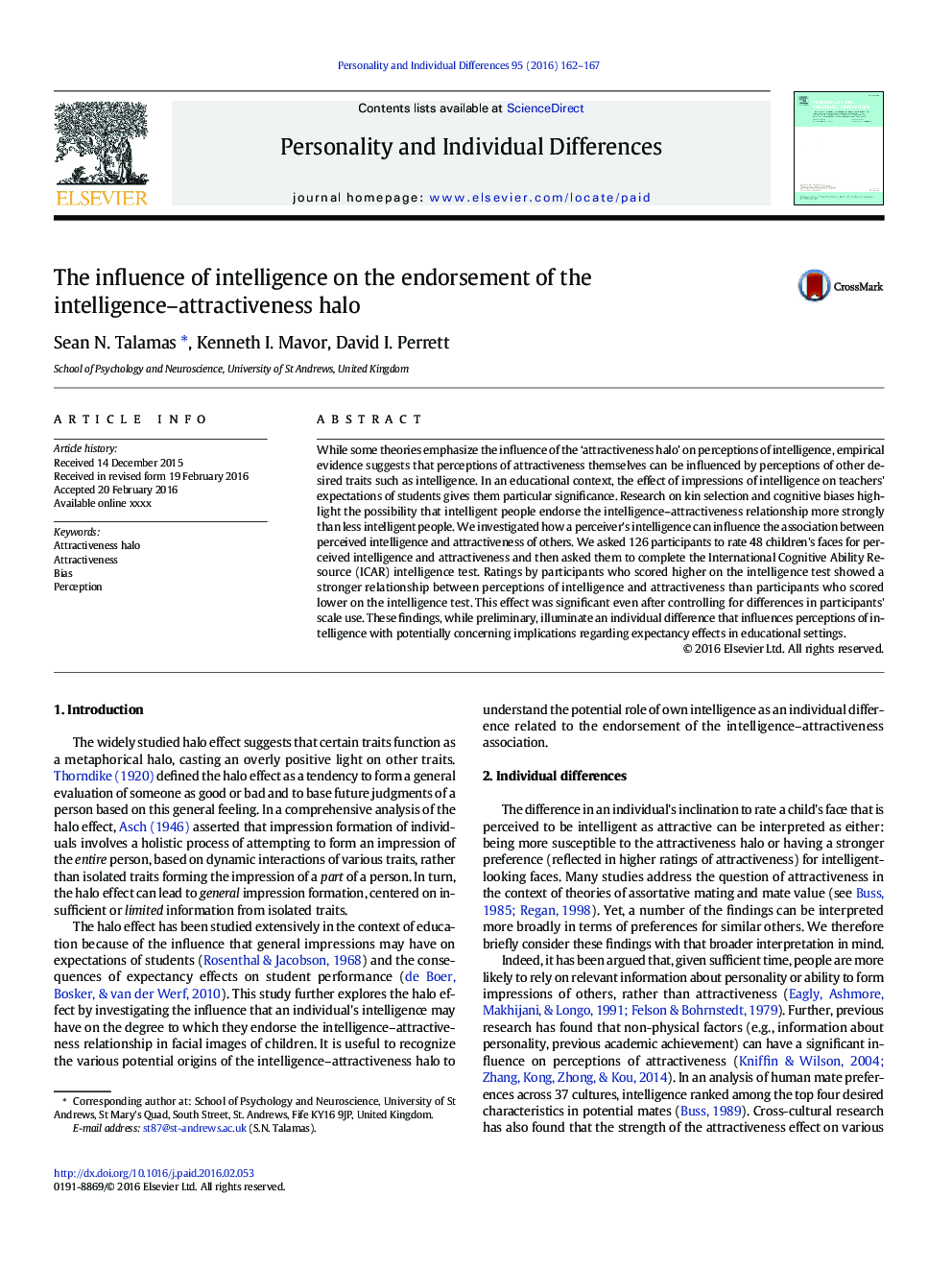| Article ID | Journal | Published Year | Pages | File Type |
|---|---|---|---|---|
| 7250306 | Personality and Individual Differences | 2016 | 6 Pages |
Abstract
While some theories emphasize the influence of the 'attractiveness halo' on perceptions of intelligence, empirical evidence suggests that perceptions of attractiveness themselves can be influenced by perceptions of other desired traits such as intelligence. In an educational context, the effect of impressions of intelligence on teachers' expectations of students gives them particular significance. Research on kin selection and cognitive biases highlight the possibility that intelligent people endorse the intelligence-attractiveness relationship more strongly than less intelligent people. We investigated how a perceiver's intelligence can influence the association between perceived intelligence and attractiveness of others. We asked 126 participants to rate 48 children's faces for perceived intelligence and attractiveness and then asked them to complete the International Cognitive Ability Resource (ICAR) intelligence test. Ratings by participants who scored higher on the intelligence test showed a stronger relationship between perceptions of intelligence and attractiveness than participants who scored lower on the intelligence test. This effect was significant even after controlling for differences in participants' scale use. These findings, while preliminary, illuminate an individual difference that influences perceptions of intelligence with potentially concerning implications regarding expectancy effects in educational settings.
Keywords
Related Topics
Life Sciences
Neuroscience
Behavioral Neuroscience
Authors
Sean N. Talamas, Kenneth I. Mavor, David I. Perrett,
